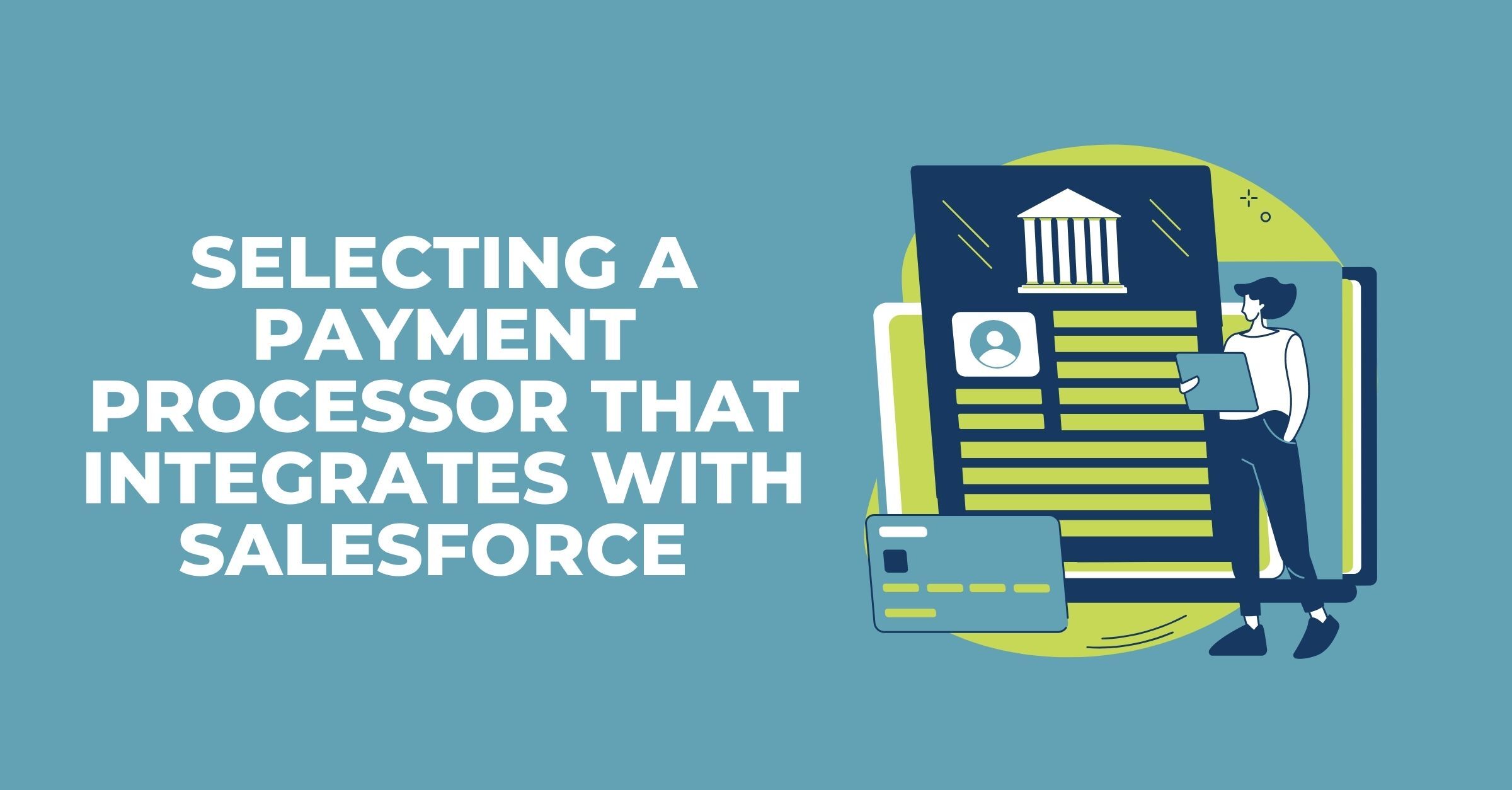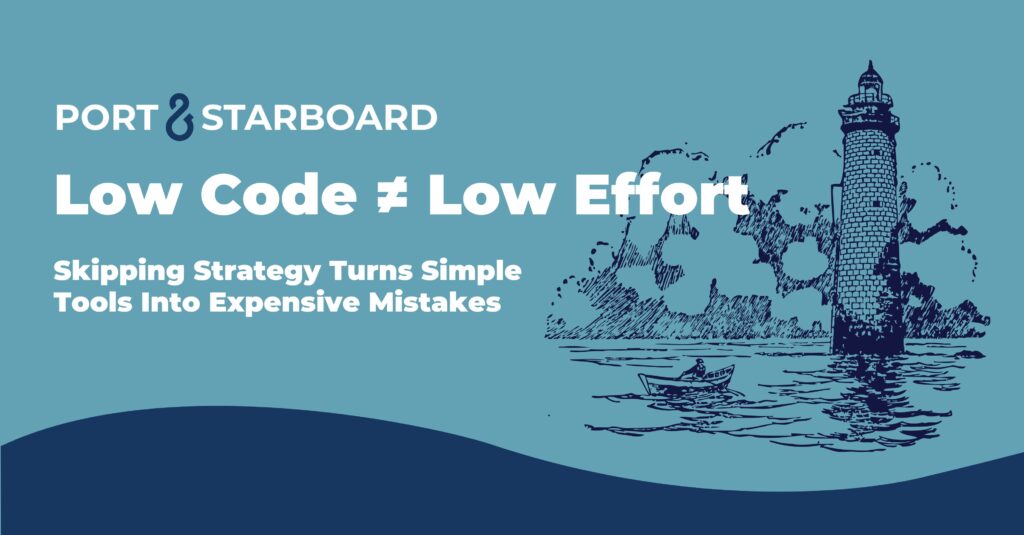As your organization grows, you may have a hard time keeping up as processes start to get more complicated, taking a toll on your company’s efficiency. A big pain point in the workflow can be payment processing.
If your company is using Salesforce, it may be even harder to know where to begin, as Salesforce doesn’t currently offer native payment processing. Luckily, there are some great integrations out there that can help keep your company on track without slowing you down and hurting your profits!
Payment Processors and Payment Gateways
A payment processor is the user interface that takes in the payment information. You can think of them as the “credit card swipe machine.” A payment gateway does the behind the scenes work of actually processing the payment with, for example, the credit card company. A payment gateway can be used with a variety of payment processors and a payment processor can be configured to work with different payment gateways.
Some examples of payment gateways include Stripe and Square. Stripe is one of the most well-known payment gateways, widely recognized as having the best APIs, integrations, and user experience. Stripe can be used with many payment processors, including Blackthorn, Chargent, and Breadwinner.
The Most Secure Payment Collection Method
There are several different ways companies can collect money from people, including:
- Cash
- Credit Cards/ Terminals
- Checks
- ACH payments (bank transfers)
- Wire Transfers
Payment collection companies, like insurance companies, prefer ACH transactions because they are cheaper and faster to process than other methods like making clients log in to their bank through a payment portal or completing micro-deposits to ensure the account and routing numbers are correct. To process an ACH payment, all you really need are a client’s account number and routing number. ACH transactions can go out to a client (the push method) or be received by the person providing the goods or services (the pull method).
The payment processing ecosystem as a whole is moving to a more secure ACH process. To cut down on fraud and errors surrounding ACH transactions, financial institutions do not want companies to just input account numbers and routing numbers and immediately pull money from people’s accounts. Ideally, banks want to see an authentication system in use, where users login to their banks through a payment portal.
Industries that commonly do business through ACH transactions will need to ensure certain compliance measures are in place in order to continue processing payments efficiently and to satisfy new banking initiatives meant to reduce payment fraud and errors.
Challenges with Payment Processing
There are a number of challenges associated with payment processing for both companies and consumers.
Companies must solve the common issue of integrating different payment collection methods in the same place. Each collection method (credit cards, ACH, payment processors, wire transfers) have unique fees associated with them.
Security standards differ between companies, the banking industry, and consumers. Customers don’t like giving account numbers or routing numbers over the phone for security reasons, but companies want something quick, cheap, and easy. There are safer ways to do ACH payments, but they take a little longer to process. While favored by financial institutions for their security features, micro-deposits aren’t ideal for businesses like insurance companies because they need a payment to post on the specific effective date of the policy that has been written. Since micro-deposits take time to verify (up to 3-4 days), payments are not always completed by the effective date. If an insurance company assumes a micro-deposit will go through and binds a policy only to find there is a problem with the payment 3-4 days later, this causes additional work to update the policy’s effective date. This also risks them having to void the policy (and lose that client’s business) altogether.
The industry as a whole is moving towards more secure ACH payments, but many companies have been requesting waiving the use of micro-deposits. To combat this, as of July 1, 2022, some payment gateways (like Stripe) are charging a small fee per transaction for any company waiving micro-deposits. They are hoping that by doing this, it will deter companies from trying to get around micro-deposits and encourage them to make transaction security a higher priority.
Payment Processor Options for Salesforce
There are many payment processors out there to choose from. Some of the most well-known payment processors that integrate with Salesforce include:
Chargent
From the outset, Chargent appears to be much cheaper than its competitors but the features you get for this lower price are greatly limited. Ultimately, a company must be on Chargent’s enterprise edition to truly enjoy all the features that make it competitive with those offered by competitors like Blackthorn.
Breadwinner
Although a relatively new payment processor on the scene, Breadwinner is quickly becoming a top option for processing payments through Salesforce. It boasts an easy set-up process, support for multiple payment gateways like Stripe and Square, and integrations with leading financial systems like Xero and Quickbooks.
Blackthorn
Port & Starboard prefers to do payment processing in Salesforce using Blackthorn. We use Blackthorn because of their product offerings, including their PayLink service, PCI compliance, and security features. Blackthorn was intentionally built on Stripe but actually works with over 120 payment gateways.
Blackthorn’s PayLink is a unique URL that can be texted or emailed to a client. Through that link, the client can login to their account and approve the payment right away. This method offers better security without having to use micro-deposits and gets payments completed quickly.
Payment processing can get pretty complex, but with the help of a great integration and a team of experts, it can be smooth sailing. Is your company looking to integrate a payment processor into Salesforce? We can help!




